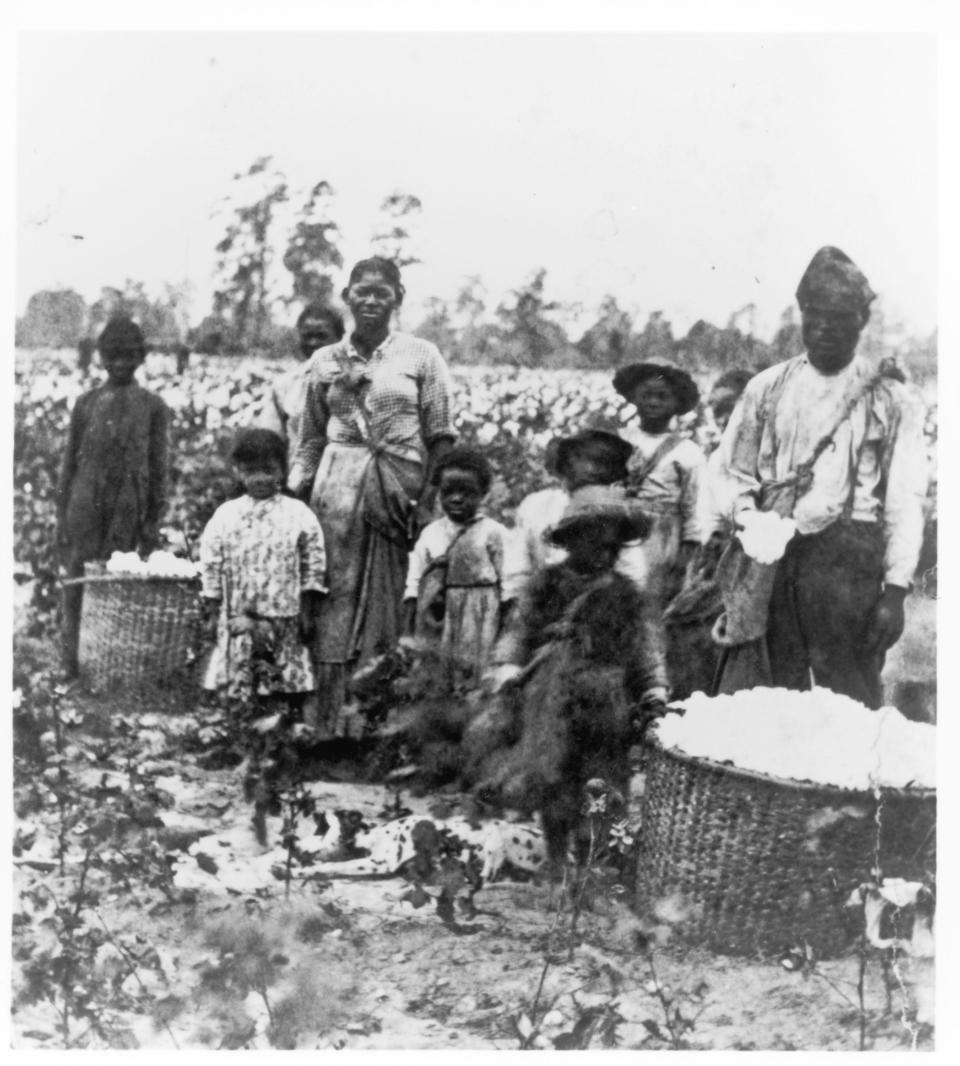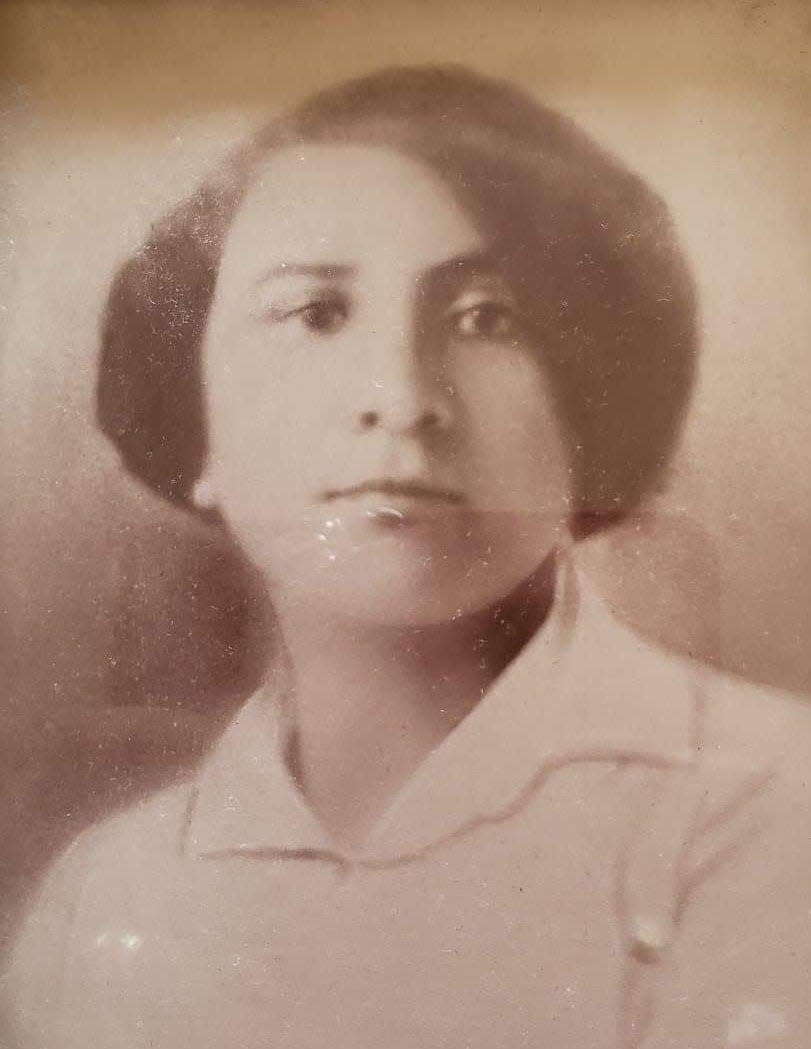Reparations call is a moral reckoning white Americans can no longer delay

When I called Georgetown University community engagement associate Melisande Short-Colomb on a recent weeknight, I had a few questions about a piece she had written for "Repairing America," a USA TODAY project exploring reparations and the fight for social justice in the United States.
I was helping Meli finish a first-person narrative that involved the trafficking of young slaves, records of her family's deportation to Louisiana, and Georgetown's reckoning with its slave history.
The determination and positivity that came through on the call, I had grown to expect from Meli. A descendant of slaves who had begun her career as a student at Georgetown at age 63, she approaches life with a gratitude that resonates in her voice.

But what she shared that night, I hadn't expected.
Meli was in a Zoom meeting with several white supporters of reparations, some of whom I had encountered late in the project.
That there are white people who believe in reparations for the pain and suffering of Black America didn't surprise me. But the fact there are white allies who believe in reparations strongly enough to help persuade other white Americans to act did surprise me.
I started the reparations project with the goal of shining the brightest light possible on the centuries of struggle faced by Black America. To me, publishing first-person accounts from people who lost loved ones in the race massacre in Tulsa, Oklahoma; laying out how racism has prevented Black people from contributing to the nation's economy; and examining how Black activists are pushing for repair in towns across America were strong vehicles for convincing the nation of the need for reparations.
As a Black woman, I set out to tell stories of Black people that are often ignored, belittled and misunderstood.
But as I finish this six-month project, I realize that in addition to talking about Black struggle, the movement toward justice requires talking about the white moral reckoning that is necessary in America – one similar to the racial reckoning that erupted after white Americans saw, through the death of George Floyd, the police brutality that Black people had fought for decades.
One horrific moment caught on camera tapped the conscience of the nation. It also showed how the passivity of white Americans is killing us.
Some of our country's most horrific moral injustices happened generations ago – slavery, Jim Crow, lynching, redlining – and the need to confront them can easily be ignored. But their ramifications are still here. And it's not just Black people who are struggling to get out from under the oppressive footprint those injustices left behind.
The story of American progress isn't about one group of people, just as the story of American oppression has never been.
The history of Black oppression, its relevance and the need for atonement have to be recognized by every white person in America.
Without that realization, without the work by white America, reparations will remain little more than committees whose suggestions never turn into action, a 30-year-old bill in Congress that has made little progress, and a housing program in Evanston, Illinois, that is being sold as reparations but, according to a member of the county council, really isn't.
A time to heal
Cheryl Grills, former president of the Association of Black Psychologists, said it best during two interviews. She quoted author Zora Neale Hurston: "The present was an egg laid by the past that had the future inside its shell." In that context, she talked about the psychological ramifications of slavery that still take a toll on Black and white America. And both groups need to be healed.
Trauma dating back to slavery has been passed down through generations for Black America, Grills said. But the ability of white Americans to be desensitized to the depths of Black suffering has been passed down as well.
Lotte Lieb Dula conducts workshops teaching white Americans why reparations are necessary and why they should become advocates. The discovery of a slave ledger in her family home forced her to reckon with her ancestors' sin of slave ownership.
Had she learned about that sooner, before retirement, she may have been more aware of racial biases she had carried her entire life. She worked in a Black neighborhood, but her organization rarely employed Black people.
She was in the Zoom meeting that night to talk about reparations with Meli.
White allies in this fight are very necessary. Dula's workshops can speak to white Americans in a way that I can't because white listeners often are uncomfortable getting the facts from me. Many would rather assume I'm on the wrong side of the argument than engage.
Checks, dignity, deeper conversations
It's hard to imagine that someone could not feel an empathy that stirs action when they hear the story of Vincent Wade Robinson.
He was tortured by Chicago police into confessing to a crime he says he did not commit. He served more than 30 years in prison. A few years ago, he received $100,000 in reparations from the city. The package also called for a memorial, the development of school curriculum on torture and an apology from then-Mayor Rahm Emanuel.
So far, more than 100 survivors of police torture have been found. They were victims under a program of brutality that started in the 1970s.
Robinson says he used the check to pay bills and purchase art supplies to support himself as a painter. He had enough for rent for a short period of time. But he's now homeless, he said. He received repair, but his story shows that simply getting a check is not enough – and shouldn't be the goal.

Tamara Lanier is a woman on a mission to bring dignity and justice to the legacy of her enslaved ancestors – an ambition that is far removed from monetary compensation.
She has taken Harvard University to court for the right to photos of an African man named Renty (her great-great-great-grandfather) and his daughter, Delia. She also wants stories of her ancestors to be based on the truth and pride she had learned as a child. A Harvard professor commissioned the photos originally to support white supremacist ideology.
In the process, she is forcing the conversation about repair to go in a deeper, necessary direction – one that rightly refutes the idea that white people and institutions should own the pillages of slavery.
Her actions also prompted the white descendants of Louis Agassiz, the Harvard professor, to reconcile with their family sins, come forward and support her.
Marian Moore, Agassiz's great-great-great-granddaughter, also was in that reparations Zoom call.

Reflecting on MLK
Meli, who has written a play about her family's exploitation, called me back that night and told me more about the meeting. The group was assembled to, among other things, explore their familial pasts.
Jesuits sold at least two of Meli's enslaved ancestors to fund Georgetown in 1838. While universities haven't done much in terms of repair, they've done more than governments.
This year, the Catholic Church, led by Jesuit priests, dedicated $100 million to reparations. Jesuits enslaved hundreds of Black men, women and children. Those fighting for repair had asked for $1 billion.
After I hung up with Meli, I looked up Rev. Martin Luther King Jr.'s 1963 speech given during the March on Washington. These current activists, gathered to fight for racial understanding, made me think of the most famous of King's calls to action.
"I have a dream that one day on the red hills of Georgia, the sons of former slaves and the sons of former slave owners will be able to sit down together at the table of brotherhood."
The women in that Zoom meeting (Meli, the daughter of former slaves; Dula, the daughter of former slave owners; and Moore, whose ancestor exploited the institution of slavery) were propping up their "table of brotherhood" with a mutual desire to change centuries-old patterns of denial and to force white Americans to reckon with the lasting consequences of racism.
Defining repair isn't easy. Neither is charting a course to make it happen.
The wake-up calls for Dula and for Moore were personal. They were confronted with the unexpected truth of ancestral sins.
Richard Cellini, a white moderate Republican, also was confronted with a hard truth. The story of Georgetown that he had been told for so long was a lie. He hadn't known his alma mater's slave past.
That knowledge led him to start the Georgetown Memory Project, which found Meli and other descendants of the slaves sold to support the university.
Confrontation is hard. But it's a necessary tool to repair the lingering grip of discrimination that drowns some of us and damages all of us.
I challenge Americans to confront their ancestral and institutional history, accept the truth they find and act.
Eileen Rivers is the opinion projects editor for USA TODAY.
This article originally appeared on USA TODAY: How white Americans can come to terms with consequences of slavery

 Yahoo Movies
Yahoo Movies 